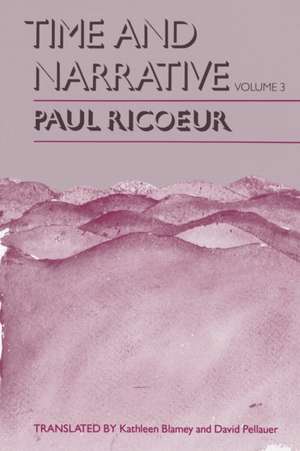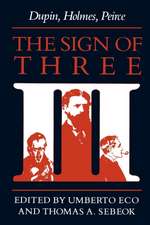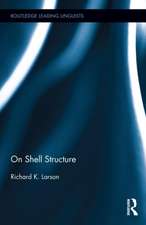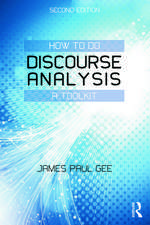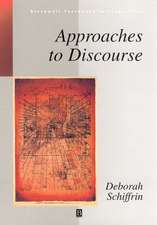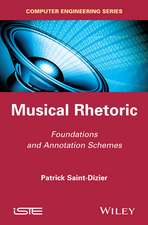Time and Narrative, Volume 3
Autor Paul Ricoeur Traducere de Kathleen Blamey, David Pellaueren Limba Engleză Paperback – 15 sep 1990
In the first two volumes of this work, Paul Ricoeur examined the relations between time and narrative in historical writing, fiction, and theories of literature. This final volume, a comprehensive reexamination and synthesis of the ideas developed in volumes 1 and 2, stands as Ricoeur's most complete and satisfying presentation of his own philosophy.
Ricoeur's aim here is to explicate as fully as possible the hypothesis that has governed his inquiry, namely, that the effort of thinking at work in every narrative configuration is completed in a refiguration of temporal experience. To this end, he sets himself the central task of determing how far a poetics of narrative can be said to resolve the "aporias"—the doubtful or problematic elements—of time. Chief among these aporias are the conflicts between the phenomenological sense of time (that experienced or lived by the individual) and the cosmological sense (that described by history and physics) on the one hand and the oneness or unitary nature of time on the other. In conclusion, Ricoeur reflects upon the inscrutability of time itself and attempts to discern the limits of his own examination of narrative discourse.
"As in his previous works, Ricoeur labors as an imcomparable mediator of often estranged philosophical approaches, always in a manner that compromises neither rigor nor creativity."—Mark Kline Taylor, Christian Century
"In the midst of two opposing contemporary options—either to flee into ever more precious readings . . . or to retreat into ever more safe readings . . . —Ricoeur's work offers an alternative option that is critical, wide-ranging, and conducive to new applications."—Mary Gerhart, Journal of Religion
Ricoeur's aim here is to explicate as fully as possible the hypothesis that has governed his inquiry, namely, that the effort of thinking at work in every narrative configuration is completed in a refiguration of temporal experience. To this end, he sets himself the central task of determing how far a poetics of narrative can be said to resolve the "aporias"—the doubtful or problematic elements—of time. Chief among these aporias are the conflicts between the phenomenological sense of time (that experienced or lived by the individual) and the cosmological sense (that described by history and physics) on the one hand and the oneness or unitary nature of time on the other. In conclusion, Ricoeur reflects upon the inscrutability of time itself and attempts to discern the limits of his own examination of narrative discourse.
"As in his previous works, Ricoeur labors as an imcomparable mediator of often estranged philosophical approaches, always in a manner that compromises neither rigor nor creativity."—Mark Kline Taylor, Christian Century
"In the midst of two opposing contemporary options—either to flee into ever more precious readings . . . or to retreat into ever more safe readings . . . —Ricoeur's work offers an alternative option that is critical, wide-ranging, and conducive to new applications."—Mary Gerhart, Journal of Religion
Preț: 232.07 lei
Nou
Puncte Express: 348
Preț estimativ în valută:
44.41€ • 48.22$ • 37.31£
44.41€ • 48.22$ • 37.31£
Carte tipărită la comandă
Livrare economică 22 aprilie-06 mai
Preluare comenzi: 021 569.72.76
Specificații
ISBN-13: 9780226713366
ISBN-10: 0226713369
Pagini: 362
Dimensiuni: 150 x 226 x 23 mm
Greutate: 0.51 kg
Ediția:Revised.
Editura: University of Chicago Press
Colecția University of Chicago Press
Locul publicării:United States
ISBN-10: 0226713369
Pagini: 362
Dimensiuni: 150 x 226 x 23 mm
Greutate: 0.51 kg
Ediția:Revised.
Editura: University of Chicago Press
Colecția University of Chicago Press
Locul publicării:United States
Notă biografică
Paul Ricoeur is the John Nuveen Professor Emeritus in the Divinity School, professor of philosophy, and a member of the Committee on Social Thought at the University of Chicago. He was for many years dean of the Faculty of Letters and Human Sciences at the University of Paris X (Nanterre).
Cuprins
Part IV: Narrated Time
Introduction
Section 1: The Aporetics of Temporality
1. The Time of the Soul and the Time of the World: The Dispute between Augustine and Aristotle
2. Intuitive Time or Invisible Time? Husserl Confronts Kant
3. Temporality, Historicality, Within-Time-Ness: Heidegger and the "Ordinary" Concept of Time
Section 2: Poetics of Narrative: History, Fiction, Time
4. Between Lived Time and Universal Time: Historical Time
5. Fiction and Its Imaginative Variations on Time
6. The Reality of the Past
7. The World of the Text and the World of the Reader
8. The Interweaving of History and Fiction
9. Should We Renounce Hegel?
10. Towards a Hermeneutics of Historical Consciousness
Notes
Bibliography
Index
Introduction
Section 1: The Aporetics of Temporality
1. The Time of the Soul and the Time of the World: The Dispute between Augustine and Aristotle
2. Intuitive Time or Invisible Time? Husserl Confronts Kant
3. Temporality, Historicality, Within-Time-Ness: Heidegger and the "Ordinary" Concept of Time
Section 2: Poetics of Narrative: History, Fiction, Time
4. Between Lived Time and Universal Time: Historical Time
5. Fiction and Its Imaginative Variations on Time
6. The Reality of the Past
7. The World of the Text and the World of the Reader
8. The Interweaving of History and Fiction
9. Should We Renounce Hegel?
10. Towards a Hermeneutics of Historical Consciousness
Notes
Bibliography
Index
